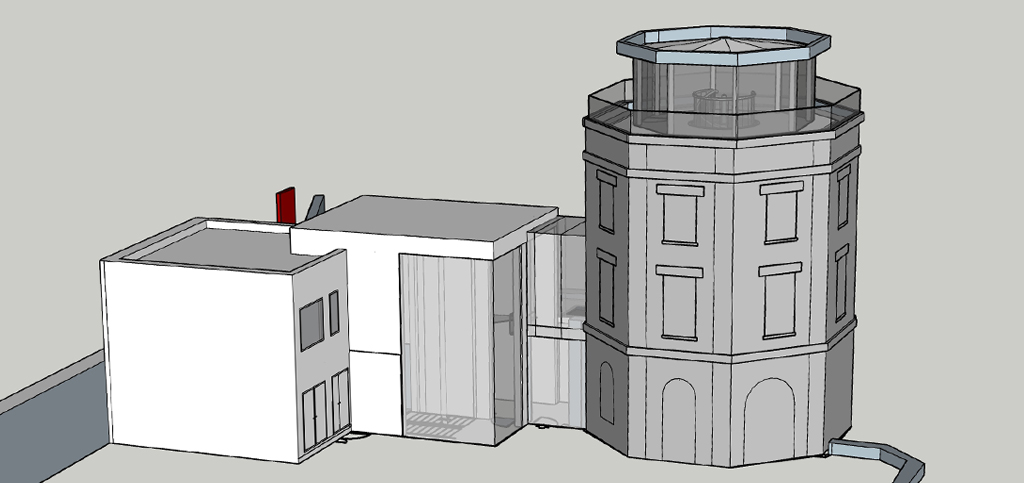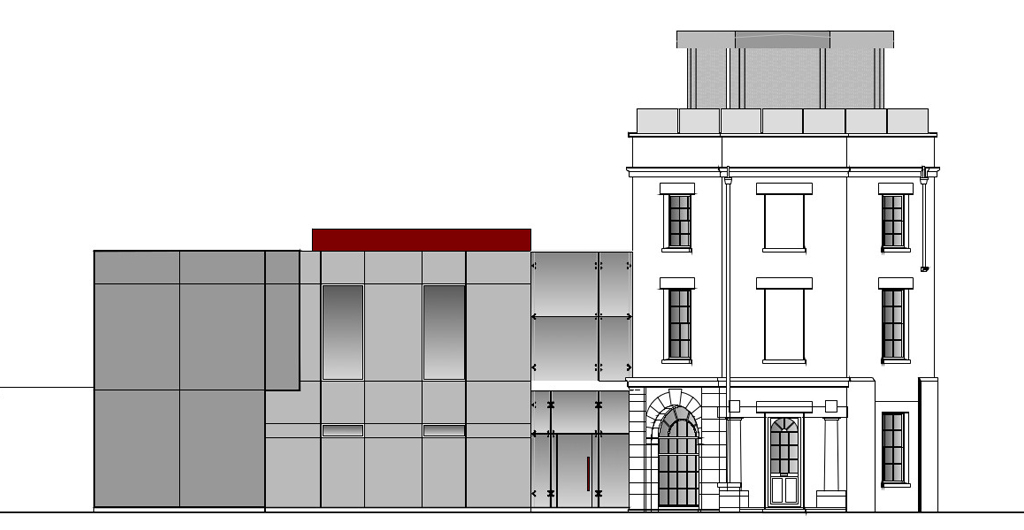TOWERING
transformation
The RNLI are the national charity that saves lives at sea. As well as providing an operational base for lifeboat crews, their Lifeboat Stations serve as the main point of contact between the charity and the public: allowing the charity to promote water safety; offering a window onto complex and challenging life-saving operations; providing revenue through retail sales and raising their profile for volunteer recruitment and fundraising purposes.
In Plymouth these public-facing functions were limited by the capacity of a grade II listed building, whilst twenty-first century operational requirements had also outgrown the available space. Studio Skein’s project brief was to design an extended facility at the Custom House station to improve spaces serving both public-facing, and operational requirements.
The quality of design and specification at the RNLI’s stations is of the highest standard of design and engineering for longevity, safety, and practicality. The charity is committed to achieving the very best return on investment for its supporters, and modern stations are built to last 100 years.
Operationally the RNLI required an improved crew changing room, training room, galley / kitchen, Manager’s Office, changing, washing and drying space, a workshop and storage space, including secure space for crew bicycles. To improve their public interface, the charity also required a new public entrance with level access to a souvenir outlet, interpretation space, education room and visitor WC, plus accessible opportunities to view the Lifeboats. These two parallel priorities needed to be kept separate to ensure smooth and efficient crew operations in an emergency.
Our design strategy was to increase the visibility of the RNLI building through sensitive new additions that serve to draw people towards and into the facility. A new transparent observation deck was proposed at 3rd floor giving views of the Lifeboats, with a new entrance clad in zinc and local limestone. Public access will be restored to the octagonal tower, whilst the RNLI’s operational requirements will be served by a new contemporary extension at ground and first floors with its own dedicated crew entrance.




